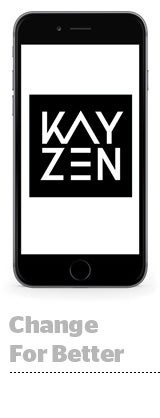Former AppLift CEO Tim Koschella is launching a company called Kayzen to help app marketers bring their programmatic ad buying in-house.
Kayzen, which came out of stealth Tuesday after several months in beta, is powered by a bidder that Koschella purchased from AppLift through a management buyout last year. It positions itself as a self-serve demand-side platform (DSP) for performance advertisers.
Most mobile DSPs are managed service, Koschella said, and “built to arbitrage.” Kayzen is a play on the Japanese word “kaizen,” which translates to “change for the better,” and that’s what Koschella said he’s hoping to achieve.
App advertisers can run their acquisition and retargeting campaigns through Kayzen’s DSP while keeping their first-party data in-house. Kayzen also provides log-level data down to the impression level to give advertisers more transparency and control over their spend – something that’s been sorely lacking in the mobile ecosystem, Koschella said.
“The vast majority of spend goes through ad networks, which are completely nontransparent – you wouldn’t even be able to know where your ad is running,” he said.
The reason most mobile advertisers have put up with so much opacity is because they’re accustomed to paying for performance. Why care about transparency if the media’s performing?
“There will always be a conflict of interest between the party looking for performance and the party providing it,” Koschella said.
But advertisers are getting more sophisticated in how they think about attribution. They want hands-on control over the buying process so they can look beyond last click, Koschella said.
That’s a goal of InnoGames, a Kayzen beta client and German online and mobile game developer with annual revenue of around 160 million euros. InnoGames, which already runs its desktop programmatic buying in-house, sees the mobile DSP market as “more fragmented than desktop,” said Pau Quevedo, online marketing manager for RTB and programmatic advertisers at InnoGames.
Getting insight into ad spend is a challenge with managed DSPs, Quevedo said, which makes it “hard to derive meaningful learnings when the transparency is not there.”
InnoGames only runs its programmatic performance campaigns based on lifetime value models, which requires using advanced algorithms to scale campaigns, as well as “the transparency and targeting capabilities that only in-house programmatic is able to deliver,” Quevedo said.
But the playing field is starting to level and visibility is getting better. The mobile programmatic in-house trend is happening on the buy side in lockstep with the in-app header bidding movement on the supply side, which is creating more even access to supply.
“In the same way supply is being democratized, we’ll also see buying start to become democratized,” Koschella said.
For the moment, Kayzen is selective about its clients. The company, which makes money through a licensing fee, doesn’t charge for setup, so Koschella ensures that potential clients are ready to go all-in on in-house before getting started. That means, at the very least, that the marketer needs an understanding of its benchmarks and user segments and easy access to its first-party data. Many app marketers store their data with mobile marketing partners.
Once established to dive in, clients can either use default algorithms within the Kayzen platform to optimize for CPMs, clicks and cost-per-install targets or work with a third party on the data science part, a choice that was particularly appealing to Quevedo at InnoGames.
“We haven’t seen many other companies that allow us to use third-party algorithms, [and] during our first mobile DSP tests, the importance of the algorithm that each different DSP has in place became clear to us,” Quevedo said. “The possibility to use one platform and then plug and test different algorithms fits our vision.”
Kayzen has 25 employees, primarily engineers and product managers, spread across two offices in Berlin and Bangalore. The company in funded by its executive team and 15 angel investors, including Dirk Freytag, former CEO of ADTECH AG, the ad server acquired by AOL in 2007, and Kai Bolik, founder of Berlin-based mobile game publisher GameDuell.















